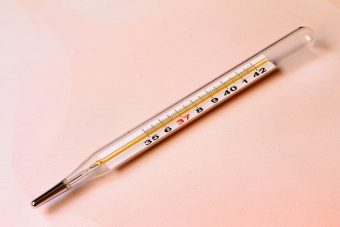
The danger of possible contact with mercury is something we have been familiar with since childhood when using old-fashioned thermometers. However, mercury is much more present in our living environment and its toxic effects go beyond the danger of being in direct contact with it. Moreover, mercury is widely distributed in the environment, but the problem arises the moment it is released and this is something that human activities contribute to significantly. Mercury becomes particularly toxic when it reaches the aquatic environment, but its release into the atmosphere in excessive amounts is also considered to be of grave concern for the health of people and other living creatures. Consequently, the World Health Organization (WHO) classified it as one of the 10 chemicals that pose the biggest threat to health.
A new study conducted by the Massachusetts Institute of Technology (MIT) indicates that about 200 tonnes of mercury emissions each year are the result of global deforestation. If the current deforestation trend continues, researchers estimate that net mercury emissions will continue to rise.
Research has also shown that the Amazon rainforest has a significant role as a repository of mercury, with a 30 per cent share. By reducing deforestation, this type of pollution could be significantly reduced. Also, the research highlighted the possibility of reducing mercury in the environment if reforestation efforts are increased. Namely, forests can absorb mercury and increased afforestation would reduce its presence in the atmosphere. However, this method must not remain the only solution to mercury pollution.
More:
- NET-ZERO INDUSTRY ACT: COUNCIL AND PARLIAMENT STRIKE A DEAL TO BOOST EU’S GREEN INDUSTRY
- COMMISSION WELCOMES AGREEMENT BETWEEN EUROPEAN PARLIAMENT AND COUNCIL ON NATURE RESTORATION LAW
- COSTS OF INDUSTRIAL POLLUTION FROM LARGEST FACILITIES DECLINE IN EUROPE BUT REMAIN AT TWO PER CENT OF EU GDP
How does deforestation contribute to mercury emissions?

Tree leaves play a key role in absorbing mercury from the atmosphere, in a similar way they do with carbon dioxide. However, unlike carbon dioxide which is important to plants in their biological function, mercury is detrimental. It stays inside the leaf until it falls off and thus ends up on the ground. After that, the mercury is absorbed into the soil, where it remains trapped.
The re-release of mercury from the soil is greatly influenced by the sun’s rays, which is precisely the essence of the MIT research. MIT explains that the leaves of trees in dense rainforests prevent the penetration of sunlight and when deforestation occurs, the density of the crowns decreases, which allows sunlight to reach the ground and thus accelerates the process of releasing mercury from the soil.
Making an interesting comparison, deforestation is likened to a country. In this imagined form, deforestation would be the second largest emitting country after China, which emits about 500 tonnes of mercury per year.
Not all parts of the world emit the same quantity of mercury. Tropical forest areas emit more mercury, as a result of burning down forests to prepare them for agricultural activities.
How can mercury emissions be further reduced?

One of the main causes of the release of mercury into the atmosphere is the burning of coal, given that mercury is found in coal. This is another reason why the transition to alternative ways of producing electricity and heat is encouraged.
Also, mercury mining can be reduced if the existing mercury is recycled and reused. Even if mercury is not mined directly, it is done indirectly through gold mines.
As a heavy metal, it is found in various objects in everyday use such as compact fluorescent light bulbs, certain types of batteries, thermometers, certain types of electronic waste and others, which is why it is important to dispose of it safely.
The European Union expressed particular concern over the fact that when mercury is released into the environment, it enters the food chain, especially fish. Due to the health hazards, i.e. possible damage to the brain, lungs, kidneys and immune system, the European Union has invested significant efforts into developing laws to limit its use. For example, the use of batteries, thermometers, barometers and blood pressure measuring devices containing mercury is prohibited. Also, it is prohibited in most switches and relays found in electronic equipment. Last year, the European Commission adopted a Delegated Regulation translating the Minamata Convention on Mercury into EU law, which introduced a ban on the production, import and export of an additional eight products containing mercury.



